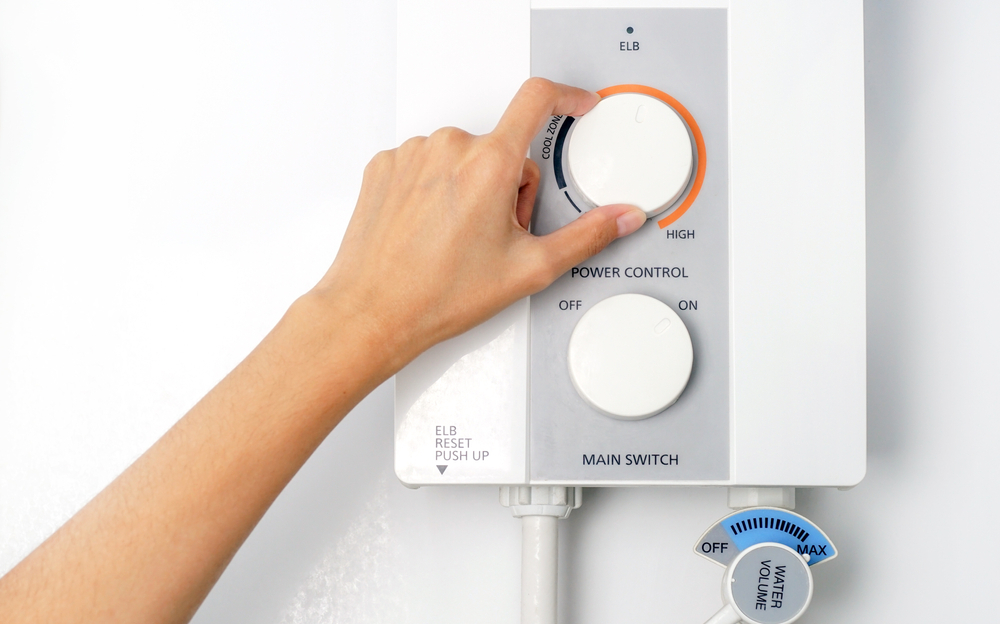
Living in Frisco with its snowy winters, you may have experienced the trouble of losing hot water right when you need it. If you have a tank-based water heater you’re given a certain volume of heated water that, once gone, needs time to replenish itself. This will take anywhere between forty minutes to over an hour, depending on the model.
You may have heard through research or word of mouth that tankless, or “on-demand” water heaters can provide an unlimited supply of hot water, assuming you stay below the maximum flow rate. This is good news for the leisurely shower-takers in your household, but a tankless water heater comes with other perks as well.
Keep reading to learn of three surprising benefits that come with making the switch to a tankless water heater.
Penny Spent, Penny Saved
Shopping around for tankless water heaters, you may notice that they’re considerably more expensive than tank-based models. There are reasons for this that we’ll get into next, but rest assured this price tag will pay for itself in time.
Energy Efficiency
The U.S. Department of Energy has shown that tankless water heaters are anywhere between 8-50% more efficient than other alternatives, depending on use. And while tank-based heaters are heating water 24/7, even if you’re not using it, a tankless water heater heats as needed. This means it negates the cost of energy other heaters would’ve been wasting.
This is seen most remarkably in smaller homes or ones that use less than 41 gallons of water per day, but even in more water-dependent households the savings are noticeable. According to Energy Star, you have the potential to make back the money spent on a tankless heater well within its lifespan.
Other Savings
Another way you can make back installation cost is to take advantage of the federal tax advantages that come with installing such an energy-efficient appliance. Currently, the federal government is offering a 10% tax credit towards the cost and installation of a tankless water heater. That’s money back in your pocket, and an eco-friendly supply of hot water for your household.
Big Life in a Small Space
The main reason why tankless water heaters are more expensive than the tank-based models is because of their lifespan. While even the most high-quality traditional water heater will last about a decade, a tankless model boasts a lifespan double that.
Warranty Wellness
For an appliance that lasts as long as your average tankless water heater, you want a security plan that can accommodate it. Most traditional, gas or electric tank-heaters have a warranty of about five or six years. This leaves a stretch of time before you need to think about replacing it where, if something goes wrong, you’ll have to pay to fix it out-of-pocket.
Compare this to a tankless water heater, which comes with a warranty that can last up to twenty years – roughly the entire lifespan of the appliance itself. As long as you take the necessary steps to keep this warranty vaid, meaning performing annual maintenance that you should be doing anyway, your tankless heater is covered until it’s time to replace it.
Saving Space
If you were to arrange a boxing match between a tankless and a tank-style heater, it’s undeniable that the tanked heater would win. We’ll admit it. Coming in at 150 pounds and over four feet tall, this 40-gallon behemoth would take down a tankless water heater in a cagematch almost immediately.
But when it comes to inviting these two options into your home, you might not have the room to accommodate a tank-based water heater. If that’s the case, a tankless model may be more appealing. Unlike their older sibling, they’re a little over two feet tall and weigh about as much as a Boston Terrier.
And while they aren’t as cute as a terrier, they’ll definitely stay in one place, mounted to the wall where they’ll take up little room, and are guaranteed not to pee on your rug.
Staying Safe
After enough time with a tank-based water heater, accumulating build-up within the tank is inevitable. When this happens, it isn’t long before the tank will corrode and eventually leak, which can cause water damage and even risk of flooding if the leak is strong enough.
Of course, since a tankless water heater doesn’t have a tank, you negate a lot of these risks, and while a leak is possible with regular maintenance it’s not likely. And, beyond leaks, ditching the tank also provides a level of safety for the worst-case scenarios.
Bursting Tanks and Tainted Water
Tank-style heaters, in accordance with current code, come with a temp and pressure relief valve that works to eliminate the risk of the tank exploding. This is an awful thing to consider, and it’s fairly rare, but the chances of this happening increase as minerals and other build-up clog the valve.
If you don’t have a tank, this won’t be a problem. Getting rid of the tank also allows more precise control over the heat of the water that you use, preventing possible incidental burns. It also ensures that the contaminants that build up over time in a tanked system don’t travel into your water lines and expose your households to toxins.
Choosing a Tankless Water Heater for your Frisco Home
There are many arguments towards switching to a tankless water heater. They don’t work with a pilot light, and because of that are less likely to overheat and build up pressure over time. And they’re easy to store in even the smallest homes, with a size and weight that’ll fit nicely in most closets.
Ultimately, when choosing between a tank versus tankless water heater for your Frisco home, you want to take into consideration the size of your household and the amount of water that you use. More than that, you should think about if a tankless heater will fit in your lifestyle.
Can you keep up with maintenance? Are you tech savvy enough to take advantage of a tankless water heater’s Wi-Fi compatibility? If the answer to questions like these is yes, a tankless water heater may fit well for you.
